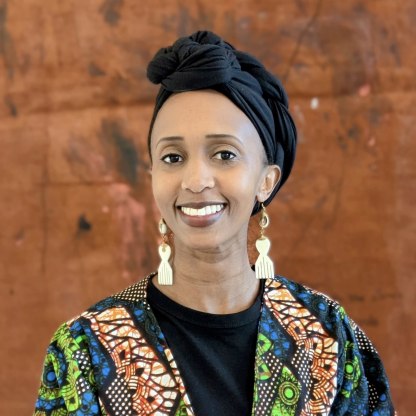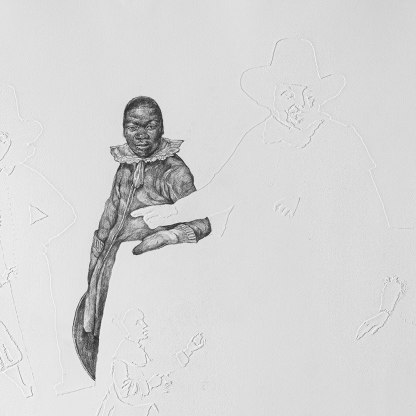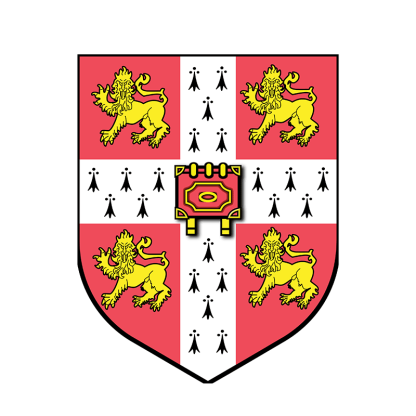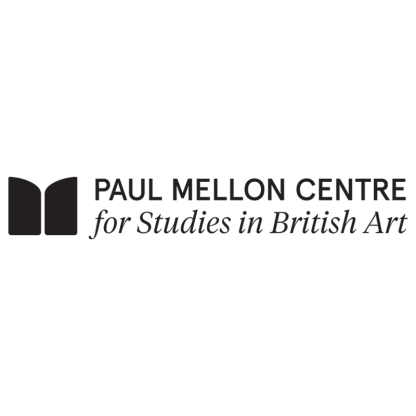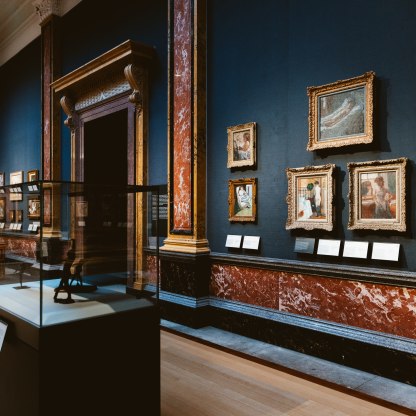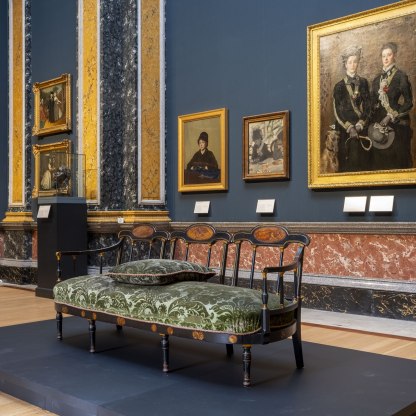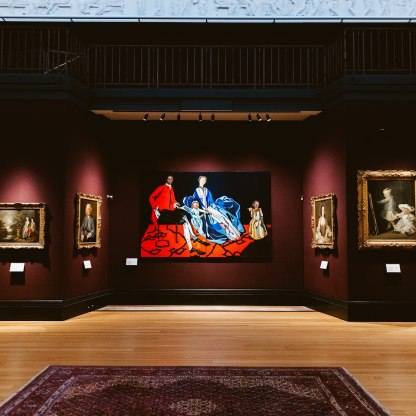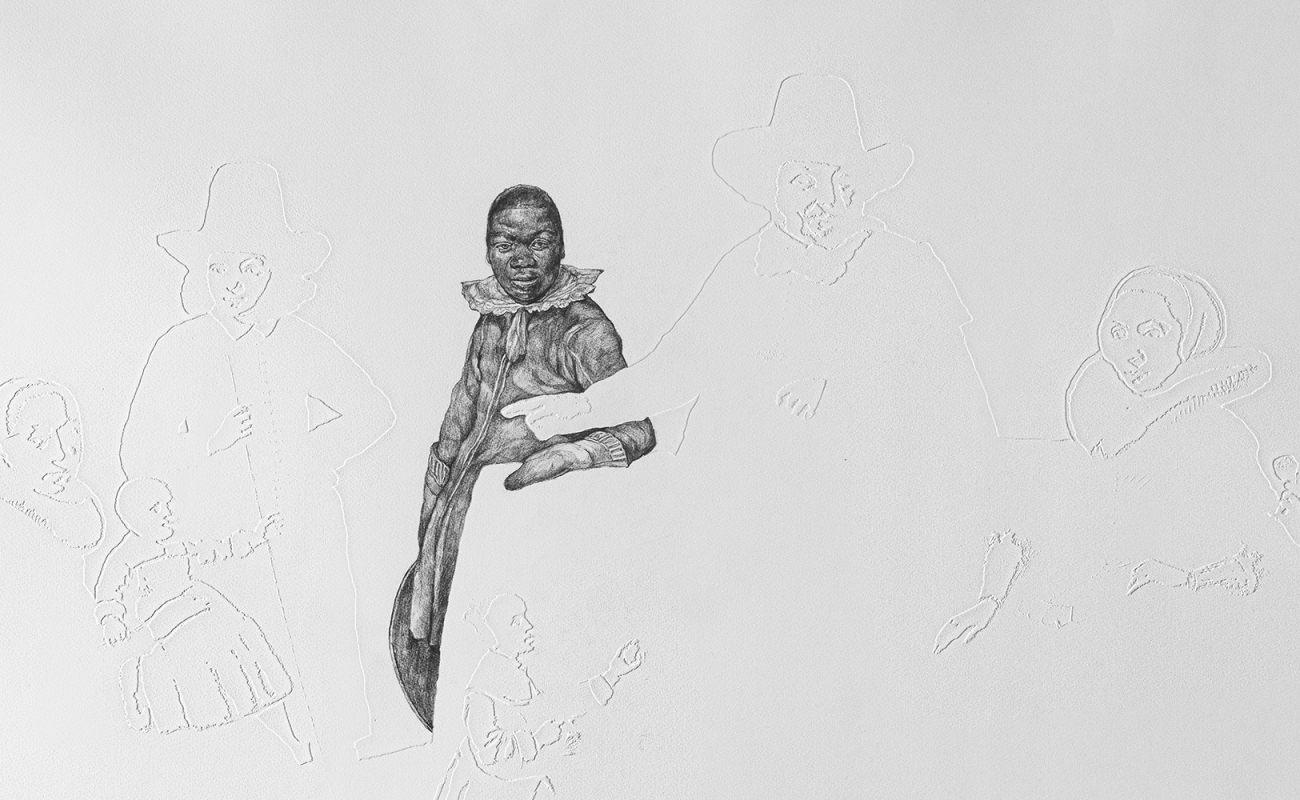8 September 2023 - 7 January 2024
'It deserves to be seen and reflected upon.' - Financial Times.
'A bold show that feels like a landmark in revealing art as a carrier of suffering but also as an agent of activism and instrument of repair.' - The Guardian.
Which stories get remembered, and why?
This exhibition explores some new stories from history – stories that help us to separate fact from fiction and history from myth.
By bringing together collections from across the University of Cambridge’s museums, libraries and colleges with loans from around the world, Black Atlantic: Power, People, Resistance asks new questions about Cambridge’s role in the transatlantic slave trade and looks at how objects and artworks have influenced history and perspectives.
In 1816, Richard Fitzwilliam donated vast sums of money, literature and art to the University of Cambridge, creating the Museum that is named after him. But Fitzwilliam’s generosity was only possible because of the wealth his grandfather accumulated in part through the transatlantic slave trade. Acknowledging this story for the first time has led to new discoveries about the objects Fitzwilliam donated, the people who collected them, and the cultures that created them.
Displaying objects and artworks made in West Africa, the Caribbean, South America and Europe, this landmark exhibition also reveals the histories that have been silenced; not just stories of exploitation, but those of resilience and liberation, too. It shows how through resisting colonial slavery, people produced new cultures known as the Black Atlantic, that continue to shape our world.
Historic works are shown alongside modern and contemporary works by artists including Barbara Walker, Donald Locke, Alberta Whittle and Keith Piper that challenge and reflect on hidden and untold stories.
The stories in the Black Atlantic can help us to create a fairer future. By rethinking our connected and complex histories and looking again through the lens of contemporary art, tomorrow’s story can be one of repair, hope and freedom.
Black Atlantic is the first in a series of exhibitions and gallery interventions planned for 2023-2026.
#BlackAtlantic
This exhibition explores themes of enslavement and racism. It includes depictions of slavery and objects linked to violence and exploitation.
Become a Friend of the Fitzwilliam and enjoy exclusive exhibition viewings and events, plus discounts in our shop and café.
You can now pre-order the exhibition catalogue below.
Want to learn more about Black Atlantic? Check out our library's virtual bookshelf, packed with reading suggestions related to the exhibition.
Vanishing Point 29 (Duyster), 2021. Fitzwilliam Museum, University of Cambridge: PD.75-2022. Image Courtesy of the artist and Cristea Roberts Gallery, London. © Barbara Walker. Photo Chris Keenan
Frequently asked questions
Is the exhibition free to visit?
Yes, tickets for our exhibitions are free.
Do I need a ticket to visit the exhibition?
Save time on arrival and pre-book your free ticket through our website. If you do not have a pre-booked ticket, you are still welcome to visit. Tickets are available at both of the Museum’s entrances and can be booked upon your arrival.
I also want to visit the Real Families exhibition, do I need a separate ticket?
Yes. Each exhibition requires its own ticket. All tickets are free. If you are a Friend of the Fitzwilliam, you no longer need to book a ticket, simply bring along your card on the day and scan it to enter the exhibition.
Is there a limit on how long I can spend in the exhibition?
There is no time limit to entry in our exhibitions. You are welcome to spend as much time as you want exploring the objects and spaces.
How many tickets can I book at once?
You can book a maximum of 15 tickets in one transaction. For groups larger than 15, please contact our Events team: events@fitzmuseum.cam.ac.uk
How do I make a group booking?
For groups larger than 15, please contact our Events team: events@fitzmuseum.cam.ac.uk
What are the exhibition opening times and when is last admission?
The exhibition is open during normal Museum opening hours. We're open Tuesday - Saturday: 10:00 - 17:00. Sundays and Bank Holidays: 12:00 - 17:00. The last ticketed timeslot will be 16:15. The exhibition is closed 24 - 26 December 2023 and 1 January 2024.
Can I change the date of my ticket after booking?
If you're no longer able to make the date and time you booked, please contact us by email: tickets@museums.cam.ac.uk
Can I take photographs in the exhibition?
You can take photographs in the Museum for non-commercial, personal use only. Full details of our photography and filming policy are available on our website.
I'm a journalist that wants to come and visit the exhibition, how do I arrange?
If you have a media enquiry about the exhibition, or want to request images and footage for use in the press, please contact our Press team: press@fitzmuseum.cam.ac.uk
I'm a member, do I still need to book a ticket?
No. If you are a Friend of the Fitzwilliam or a member of the Marlay Group, you no longer need to book a ticket, simply bring along your card on the day and scan it to enter the exhibition.
How can I join as a new member?
For details on becoming a member of the Fitzwilliam Museum, visit our website: https://www.fitzmuseum.cam.ac.uk/support-us
Why has the Fitzwilliam decided to start the conversation about this subject now?
The advisory group on the Legacies of Enslavement was created in early 2019 by the University of Cambridge’s then Vice-Chancellor, Professor Stephen J Toope, considering the growing public interest in the issue of British universities’ historical links to enslavement and the slave trade.
It was asked to advise him on Cambridge’s historical links and on the legacies of those links and to propose future action considering the findings. This exhibition builds on the information highlighted in the report and asks new questions about how the Black Atlantic has shaped the University of Cambridge’s Museums and has led to discoveries about the objects, the people who collected them, and how their stories connect Cambridge to global history.
What do you mean by 'Black Atlantic'?
'Black Atlantic’ refers to the creation and transmission of cultures by people of the African diaspora as they confronted transatlantic enslavement and empire and their pernicious afterlives.
It was first used by Robert Farris Thompson in his book Flash of the Spirit: African and AfroAmerican Art and Philosophy (1983) to describe the shared artistic practices and belief systems among people of the African diaspora. Paul Gilroy developed the concept in The Black Atlantic: Modernity and Double Consciousness (1993). He argued that through the movement of people, ideas and material goods across the Atlantic, Black cultures transcended the boundaries of any single place. In this sense, the Black Atlantic represents a rich conceptual space for limitless imagination, transmission and exchange.
This exhibition and its associated book, as well as the Fitzwilliam’s future series of related exhibitions and interventions, explore the history of the Black Atlantic and the powerful Black Atlantic political visions that have shaped — and which continue to shape — our world.
When is the next exhibition in the Black Atlantic series taking place?
The next exhibition in the Black Atlantic series is currently scheduled for early 2025. Keep an eye on our website and social media feeds where we’ll be sharing further details about this exhibition.
How will the Museum be supporting visitors who may feel overwhelmed or triggered by this subject matter?
There is a content notice at the start of the exhibition, and a reflection space at the end which gives visitors the opportunity to explore, create, read, learn and reflect after viewing the exhibition. We have also scheduled ‘listening salon’ events designed to facilitate dialogues and centre key themes in the exhibition.
How will you continue to explore this history after the exhibition ends?
We are committed to building a more equitable and inclusive world and will continue to work towards achieving this goal across every part of our organisation but particularly through our interpretation, exhibitions, programmes, and community engagement initiatives. This includes two future exhibitions and interventions as part of our Black Atlantic series.
Who is this exhibition for? Is it suitable for children?
The exhibition is for everyone. We all live with the consequences of transatlantic slavery, and we cannot understand today’s world or the legacies of structural racism and inequalities without knowledge of it.
Are you displaying racist objects and artworks in the exhibition? If so, why?
There are artworks in the exhibition which show racist depictions of people of African descent. Such objects reveal how attitudes of prejudice towards Black people were shaped and reinforced within society, during and following the abolition of transatlantic slavery.
Why are you telling this story of slavery and not others?
Our exhibition looks primarily at the effects of the transatlantic slave trade. This is the part of the global history of enslavement that connects to the Fitzwilliam and how it was founded and continues to impact our Museum today. That story is part of our story.
Why is the exhibition taking place in the Founder's Galleries?
The Fitzwilliam Museum’s historic Founder’s Galleries are an integral part of the exhibition as they were built in part using the bequest from Viscount Fitzwilliam. Viscount Fitzwilliam’s South Sea assets had come to him from his grandfather, Matthew Decker, a governor of the South Sea Company and a director of both the Royal African Company and of the East India Company.
What do we know about the Museum and the University's links to slavery?
The University published its preliminary report on the legacies of enslavement in Cambridge on 22 September 2022. The research indicates that the University was implicated in enslavement in a number of ways including: investment in the Atlantic slave trade; receiving benefactions based on income derived from the trade in enslaved people; educating wealthy slave estate owners’ sons; and academics whose research supported the racist pro-slavery movement.
Long-term income derived from the slave trade was also accrued as a result of major gifts and benefactions to some parts of collegiate Cambridge. One of these gifts was the donation that supported the foundation of the Fitzwilliam Museum in 1816. Lord Fitzwilliam’s South Sea assets had come to him from his grandfather, Matthew Decker, a governor of the South Sea Company at its inception, a director of both the Royal African Company and also of the East India Company.
Why did the University commission this research now?
The Advisory Group on the Legacies of Enslavement was created in early 2019 at the request of the then Vice-Chancellor, Professor Stephen J Toope, to enable the University to fully understand its historical links to enslavement and the slave trade, and to advise a series of recommendations.
Does the Fitzwilliam Museum continue to profit from slavery today?
The original bequest used to found the Fitzwilliam Museum still financially supports the museum today.
There are some specimens and artefacts that remain within the Cambridge Museums’ (UCM) collections, including the Fitzwilliam, that arrived via routes linked to slavery. For example, objects that were collected or excavated by enslaved people, plantation owners, colonial officials and alumni and gifted to the museums.
This exhibition will feature some of these objects and intends to facilitate conversations around the legacies of empire and enslavement.
What are you doing to combat racism and racial discrimination?
We are committed to being an anti-racist organisation and we recognise the systemic inequalities and injustices that exist due to the complex histories we explore here at the Museum. We seek to be actively anti-racist in actions, not just in words. We proactively identify and address inequalities, challenge discriminatory practice and embed principles of anti-racism across the organisation. We pledge that our exhibitions and displays, collections and acquisitions, learning and event programmes, research initiatives and communications will reflect and promote equity, diversity and anti-racism, and ensure access for all.



.png?key=exhibition)
